Cites International Mindset, Judgment and Flexibility—Ambiguity and Global Transformation Form the Backdrop
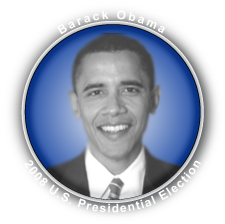 The 2008 U.S. presidential election has been the most dramatic in recent history by any measure. Converging economic, cultural and political issues are increasing the level of discomfort among voters and raising the stakes. In endorsing Barack Obama, I have considered the candidates in several dimensions, but my primary perspective has been that of a management consultant. The United States is a client in crisis, and I have asked myself, “What kind of leader does the country need, given the challenges it faces?” Barack Obama is my prescription, although there may be unwelcome side effects. If circumstances were different, I might well have favored John McCain. The 2008 U.S. presidential election has been the most dramatic in recent history by any measure. Converging economic, cultural and political issues are increasing the level of discomfort among voters and raising the stakes. In endorsing Barack Obama, I have considered the candidates in several dimensions, but my primary perspective has been that of a management consultant. The United States is a client in crisis, and I have asked myself, “What kind of leader does the country need, given the challenges it faces?” Barack Obama is my prescription, although there may be unwelcome side effects. If circumstances were different, I might well have favored John McCain.
[…]
How to deal with technology disputes when your team gets into prolonged arguments over Web 2.0 tools, vendors or approaches. Taking a customer-centric approach to web 2.0 projects. Unleashing the power of the Web 2.0 conversation within your projects. […]
Web 2.0 Impact on 2008 U.S. Presidential Election Declared Minimal at Executives’ Club, but cantankerous subtext hints at possible monkey wrench—democratic race in spotlight.
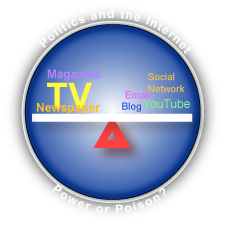 The Executives’ Club of Chicago fielded an expert panel to brief Midwest executives on Web 2.0’s current and likely impact on one of the most watched U.S. elections in recent history. Marie Cocco, a renowned political columnist, Peter Greenburger, Director of Google’s Elections & Issue Advocacy Team, and Alan Webber, Senior Analyst of Forrester Research brought to bear diverse perspectives on the question at the event, which took place at The University Club on January 31, 2008. The Executives’ Club of Chicago fielded an expert panel to brief Midwest executives on Web 2.0’s current and likely impact on one of the most watched U.S. elections in recent history. Marie Cocco, a renowned political columnist, Peter Greenburger, Director of Google’s Elections & Issue Advocacy Team, and Alan Webber, Senior Analyst of Forrester Research brought to bear diverse perspectives on the question at the event, which took place at The University Club on January 31, 2008.
They produced a logical conclusion, namely that Web 2.0 was a force in the making but that it would probably not be a decisive factor this year. The session was graciously co-hosted by Communications Committee Co-Chairs David Prosperi, Vice President Global Public Relations, AON and David Blake, Publisher of Crain’s Chicago Business.
As usual, I will share my notes of speakers’ remarks before adding my between the lines analysis and conclusions. As an […]
U.S. Economy Due for Sideways Year—Special Effects by Presidential Election—Uncomfortable Long-term Questions Waiting in Wings
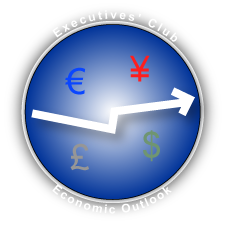 The Executives’ Club of Chicago assembled an all-star panel to give Midwest business leaders their guidance for various aspects of the U.S. economy in 2008. Diane Swonk, Chief Economist of Mesirow Financial and Robert “Bob” Froehlich, Chairman of the Investment Strategy Committee, Deutsche Asset Management returned, and the mystery panelist was Jack Ablin, Chief Investment Officer, Harris Private Bank. They broke out their respective crystal balls for 2008, along with comedic effects. The session was brilliantly moderated by Terry Savage, Financial Columnist of the Chicago Sun-Times who didn’t miss a beat and extracted specific predictions from panelists. The Executives’ Club of Chicago assembled an all-star panel to give Midwest business leaders their guidance for various aspects of the U.S. economy in 2008. Diane Swonk, Chief Economist of Mesirow Financial and Robert “Bob” Froehlich, Chairman of the Investment Strategy Committee, Deutsche Asset Management returned, and the mystery panelist was Jack Ablin, Chief Investment Officer, Harris Private Bank. They broke out their respective crystal balls for 2008, along with comedic effects. The session was brilliantly moderated by Terry Savage, Financial Columnist of the Chicago Sun-Times who didn’t miss a beat and extracted specific predictions from panelists.
Panelists agreed that the U.S. economy would struggle in 2008, but it would move mostly sideways, probably eking out a 1-2% gain for the year after an unsatisfying first half. All panelists predicted that the Dow would touch 14,000 sometime during the year. Froehlich again emphasized the importance of looking beyond the U.S. for investments. Swonk and Ablin were less outspoken but had high non-U.S. allocations in their recommended […]
Year in Review 2007—Editor’s Choice of the Global Human Capital Journal
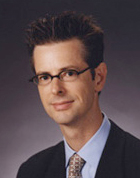 As I reflect on 2007 and create strategy for 2008, several macro-trends come into sharp relief, and I believe that some of them might be helpful to you as you conduct your own planning. As always, I focus on emerging phenomena because they are areas in which disruption and discontinuous change are acting on markets, thereby elevating threats and opportunities. Helping leaders to create strategy to manage the risk of unusual market developments is the focus of my consulting practice. As I reflect on 2007 and create strategy for 2008, several macro-trends come into sharp relief, and I believe that some of them might be helpful to you as you conduct your own planning. As always, I focus on emerging phenomena because they are areas in which disruption and discontinuous change are acting on markets, thereby elevating threats and opportunities. Helping leaders to create strategy to manage the risk of unusual market developments is the focus of my consulting practice.
In 2007 it became clear to me that we were entering a profound social transformation that would produce an unimaginable degree of change. Unlike the technology-precipitated change that I’ve been helping people with since the 1990s, technology is shifting to the background now, and pervasive social change is taking the stage. Look for disruption in all areas affected by how people connect, communicate, purchase and collaborate: business, politics, community and leisure. Moreover, these changes are completely global with all the variations that engenders.
I can’t tell […]
Caterpillar CEO Pitches Free Trade to Business Leaders at Executives’ Club asks whether the U.S. is at turning point with global economy in the balance—A lack of courage?
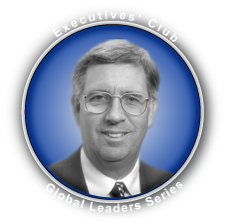 James W. Owens, Chairman and Chief Executive Officer of Caterpillar Inc., beseeched U.S. business and government leaders to find the courage to save free trade. The speaker at the Executives’ Club of Chicago’s Global Leaders Series, Owens addressed a packed house at the Hilton Chicago on 16 October 2007. His speech was immediately followed by the Club’s Technology Conference at which CIOs advised their peers on the emerging role of the CIO in the “networked economy 2.0.” James W. Owens, Chairman and Chief Executive Officer of Caterpillar Inc., beseeched U.S. business and government leaders to find the courage to save free trade. The speaker at the Executives’ Club of Chicago’s Global Leaders Series, Owens addressed a packed house at the Hilton Chicago on 16 October 2007. His speech was immediately followed by the Club’s Technology Conference at which CIOs advised their peers on the emerging role of the CIO in the “networked economy 2.0.”
A Ph.D. economist with extensive global management experience, Owens made a very convincing argument that the U.S. and the global economy are at a turning point. It is time for the U.S. to lead by example to assure the continuance of the free trade juggernaut that has produced so much wealth in the world. If it fails, the world stands before the prospect of sharply curtailed trade.
Following […]
Economic Outlook for 2007 Reveals Pockets of Opportunity + Political Handicapping
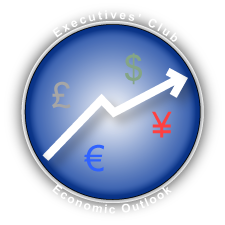 The Executives’ Club of Chicago assembled an all-star panel to give Midwest business leaders their guidance for various aspects of the U.S. economy in 2007. Diane Swonk, Chief Economist of Mesirow Financial, Alan Murray, Assistant Managing Editor of The Wall Street Journal and Robert “Bob” Froehlich, Chairman of the Investment Strategy Committee, Deutsche Asset Management broke out their respective crystal balls for 2007, and the audience was not disappointed for lack of insight or wit. The session was scintillatingly moderated by Terry Savage, Financial Columnist of the Chicago Sun-Times. The Executives’ Club of Chicago assembled an all-star panel to give Midwest business leaders their guidance for various aspects of the U.S. economy in 2007. Diane Swonk, Chief Economist of Mesirow Financial, Alan Murray, Assistant Managing Editor of The Wall Street Journal and Robert “Bob” Froehlich, Chairman of the Investment Strategy Committee, Deutsche Asset Management broke out their respective crystal balls for 2007, and the audience was not disappointed for lack of insight or wit. The session was scintillatingly moderated by Terry Savage, Financial Columnist of the Chicago Sun-Times.
The consensus was that the U.S. economy would have a relatively benign year in 2007. All panelists predicted a higher Dow, and their predictions concurred with Wall Street’s most accurate ,^) indicator, the Super Bowl Predictor. Little of import will happen on the political front, the U.S. economy will grow at a slower pace, and investment returns will be generally highest outside the U.S. Elsewhere, consumer empowerment reared its head in the executive pay issue, […]
China Analysis and Outlook 2007 offers political insight into the global knowledge market.
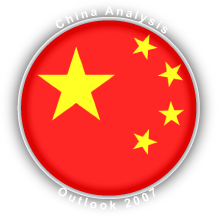 The Strategic Management Association, the Harvard Business School and the CDMA sponsored the 2007 China Outlook, which was given by Lyric Hughes-Hale, Founder China Online in Chicago 9 January 2007. Her presentation was preceded by David Hale’s 2007 Economic Forecast. The Strategic Management Association, the Harvard Business School and the CDMA sponsored the 2007 China Outlook, which was given by Lyric Hughes-Hale, Founder China Online in Chicago 9 January 2007. Her presentation was preceded by David Hale’s 2007 Economic Forecast.
As a long-time China watcher and analyst, Lyric has rare and unusual insights to which I’ll try to do justice before giving my observations. The Global Human Capital Journal also covered the 2006 China Outlook.
[…]
Economic Insight Behind the Global Knowledge Market
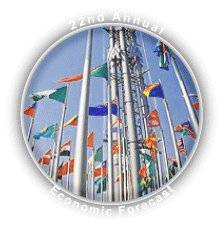 The Strategic Management Association, the Harvard Business School and the CDMA sponsored the 2007 Economic Forecast featuring David Hale, Chairman of Prince Street Capital Management and Lyric Hughes-Hale, Founder China Online. David has international renown as an international economist, and he presented his encyclopedic knowledge and perspective on global economic trends in Chicago on 9 January 2007. Afterward, Lyric shared her insights on China in Part II of the evening. The Global Human Capital Journal also covered the 2006 Economic Forecast. The Strategic Management Association, the Harvard Business School and the CDMA sponsored the 2007 Economic Forecast featuring David Hale, Chairman of Prince Street Capital Management and Lyric Hughes-Hale, Founder China Online. David has international renown as an international economist, and he presented his encyclopedic knowledge and perspective on global economic trends in Chicago on 9 January 2007. Afterward, Lyric shared her insights on China in Part II of the evening. The Global Human Capital Journal also covered the 2006 Economic Forecast.
David’s forecast was global in scope but adapted to his U.S. audience. It reflected many of the numbers behind the global shift to the Knowledge Economy, and how this is driving global prosperity:
[…]
The TransAtlantic Partnership’s Implications for U.S., E.U. Economies summarizes coverage of the EEC International Conference—Talking with the Ambassadors of the World’s Largest Trading Relationship and the CEOs of Four Global Enterprises.
 Three eminent diplomatic leaders and CEOs from Baxter, Financial Dynamics, ITW and Philips briefed Midwest executives on the current status and future directions of the world’s largest trading relationship at the Executives’ Club of Chicago’s International Conference November 15. The half-day program featured several presentations, a CEO panel and a media round table. All speakers sought to impress upon the audience the pivotal importance of the transatlantic alliance for the United States and Europe, and most warned chief executives neither to take it for granted nor to be passive in the face of rising protectionism. Three eminent diplomatic leaders and CEOs from Baxter, Financial Dynamics, ITW and Philips briefed Midwest executives on the current status and future directions of the world’s largest trading relationship at the Executives’ Club of Chicago’s International Conference November 15. The half-day program featured several presentations, a CEO panel and a media round table. All speakers sought to impress upon the audience the pivotal importance of the transatlantic alliance for the United States and Europe, and most warned chief executives neither to take it for granted nor to be passive in the face of rising protectionism.
The fact that the importance of the E.U.—U.S. alliance had to be emphasized brought into sharp relief the relatively sudden rise of Asia as well as the shift from the Industrial Economy to the Knowledge Economy. Both megatrends pose opportunities and threats for the world’s largest economies and enterprises, and […]
|
|
 The 2008 U.S. presidential election has been the most dramatic in recent history by any measure. Converging economic, cultural and political issues are increasing the level of discomfort among voters and raising the stakes. In endorsing Barack Obama, I have considered the candidates in several dimensions, but my primary perspective has been that of a management consultant. The United States is a client in crisis, and I have asked myself, “What kind of leader does the country need, given the challenges it faces?” Barack Obama is my prescription, although there may be unwelcome side effects. If circumstances were different, I might well have favored John McCain.
The 2008 U.S. presidential election has been the most dramatic in recent history by any measure. Converging economic, cultural and political issues are increasing the level of discomfort among voters and raising the stakes. In endorsing Barack Obama, I have considered the candidates in several dimensions, but my primary perspective has been that of a management consultant. The United States is a client in crisis, and I have asked myself, “What kind of leader does the country need, given the challenges it faces?” Barack Obama is my prescription, although there may be unwelcome side effects. If circumstances were different, I might well have favored John McCain.
 The Executives’ Club of Chicago fielded an expert panel to brief Midwest executives on Web 2.0’s current and likely impact on one of the most watched U.S. elections in recent history. Marie Cocco, a renowned political columnist, Peter Greenburger, Director of Google’s Elections & Issue Advocacy Team, and Alan Webber, Senior Analyst of Forrester Research brought to bear diverse perspectives on the question at the event, which took place at The University Club on January 31, 2008.
The Executives’ Club of Chicago fielded an expert panel to brief Midwest executives on Web 2.0’s current and likely impact on one of the most watched U.S. elections in recent history. Marie Cocco, a renowned political columnist, Peter Greenburger, Director of Google’s Elections & Issue Advocacy Team, and Alan Webber, Senior Analyst of Forrester Research brought to bear diverse perspectives on the question at the event, which took place at The University Club on January 31, 2008. The Executives’ Club of Chicago assembled an all-star panel to give Midwest business leaders their guidance for various aspects of the U.S. economy in 2008. Diane Swonk, Chief Economist of Mesirow Financial and Robert “Bob” Froehlich, Chairman of the Investment Strategy Committee, Deutsche Asset Management returned, and the mystery panelist was Jack Ablin, Chief Investment Officer, Harris Private Bank. They broke out their respective crystal balls for 2008, along with comedic effects. The session was brilliantly moderated by Terry Savage, Financial Columnist of the Chicago Sun-Times who didn’t miss a beat and extracted specific predictions from panelists.
The Executives’ Club of Chicago assembled an all-star panel to give Midwest business leaders their guidance for various aspects of the U.S. economy in 2008. Diane Swonk, Chief Economist of Mesirow Financial and Robert “Bob” Froehlich, Chairman of the Investment Strategy Committee, Deutsche Asset Management returned, and the mystery panelist was Jack Ablin, Chief Investment Officer, Harris Private Bank. They broke out their respective crystal balls for 2008, along with comedic effects. The session was brilliantly moderated by Terry Savage, Financial Columnist of the Chicago Sun-Times who didn’t miss a beat and extracted specific predictions from panelists. As I reflect on 2007 and create strategy for 2008, several macro-trends come into sharp relief, and I believe that some of them might be helpful to you as you conduct your own planning. As always, I focus on emerging phenomena because they are areas in which disruption and discontinuous change are acting on markets, thereby elevating threats and opportunities. Helping leaders to create strategy to manage the risk of unusual market developments is the focus of my consulting practice.
As I reflect on 2007 and create strategy for 2008, several macro-trends come into sharp relief, and I believe that some of them might be helpful to you as you conduct your own planning. As always, I focus on emerging phenomena because they are areas in which disruption and discontinuous change are acting on markets, thereby elevating threats and opportunities. Helping leaders to create strategy to manage the risk of unusual market developments is the focus of my consulting practice. James W. Owens, Chairman and Chief Executive Officer of Caterpillar Inc., beseeched U.S. business and government leaders to find the courage to save free trade. The speaker at the Executives’ Club of Chicago’s Global Leaders Series, Owens addressed a packed house at the Hilton Chicago on 16 October 2007. His speech was immediately followed by the Club’s Technology Conference at which CIOs advised their peers on the emerging role of the CIO in the “networked economy 2.0.”
James W. Owens, Chairman and Chief Executive Officer of Caterpillar Inc., beseeched U.S. business and government leaders to find the courage to save free trade. The speaker at the Executives’ Club of Chicago’s Global Leaders Series, Owens addressed a packed house at the Hilton Chicago on 16 October 2007. His speech was immediately followed by the Club’s Technology Conference at which CIOs advised their peers on the emerging role of the CIO in the “networked economy 2.0.” The Executives’ Club of Chicago assembled an all-star panel to give Midwest business leaders their guidance for various aspects of the U.S. economy in 2007. Diane Swonk, Chief Economist of Mesirow Financial, Alan Murray, Assistant Managing Editor of The Wall Street Journal and Robert “Bob” Froehlich, Chairman of the Investment Strategy Committee, Deutsche Asset Management broke out their respective crystal balls for 2007, and the audience was not disappointed for lack of insight or wit. The session was scintillatingly moderated by Terry Savage, Financial Columnist of the Chicago Sun-Times.
The Executives’ Club of Chicago assembled an all-star panel to give Midwest business leaders their guidance for various aspects of the U.S. economy in 2007. Diane Swonk, Chief Economist of Mesirow Financial, Alan Murray, Assistant Managing Editor of The Wall Street Journal and Robert “Bob” Froehlich, Chairman of the Investment Strategy Committee, Deutsche Asset Management broke out their respective crystal balls for 2007, and the audience was not disappointed for lack of insight or wit. The session was scintillatingly moderated by Terry Savage, Financial Columnist of the Chicago Sun-Times. The Strategic Management Association, the Harvard Business School and the CDMA sponsored the 2007 China Outlook, which was given by Lyric Hughes-Hale, Founder China Online in Chicago 9 January 2007. Her presentation was preceded by David Hale’s 2007 Economic Forecast.
The Strategic Management Association, the Harvard Business School and the CDMA sponsored the 2007 China Outlook, which was given by Lyric Hughes-Hale, Founder China Online in Chicago 9 January 2007. Her presentation was preceded by David Hale’s 2007 Economic Forecast. The Strategic Management Association, the Harvard Business School and the CDMA sponsored the 2007 Economic Forecast featuring David Hale, Chairman of Prince Street Capital Management and Lyric Hughes-Hale, Founder China Online. David has international renown as an international economist, and he presented his encyclopedic knowledge and perspective on global economic trends in Chicago on 9 January 2007. Afterward, Lyric shared her insights on China in Part II of the evening. The Global Human Capital Journal also covered the 2006 Economic Forecast.
The Strategic Management Association, the Harvard Business School and the CDMA sponsored the 2007 Economic Forecast featuring David Hale, Chairman of Prince Street Capital Management and Lyric Hughes-Hale, Founder China Online. David has international renown as an international economist, and he presented his encyclopedic knowledge and perspective on global economic trends in Chicago on 9 January 2007. Afterward, Lyric shared her insights on China in Part II of the evening. The Global Human Capital Journal also covered the 2006 Economic Forecast. Three eminent diplomatic leaders and CEOs from Baxter, Financial Dynamics, ITW and Philips briefed Midwest executives on the current status and future directions of the world’s largest trading relationship at the Executives’ Club of Chicago’s International Conference November 15. The half-day program featured several presentations, a CEO panel and a media round table. All speakers sought to impress upon the audience the pivotal importance of the transatlantic alliance for the United States and Europe, and most warned chief executives neither to take it for granted nor to be passive in the face of rising protectionism.
Three eminent diplomatic leaders and CEOs from Baxter, Financial Dynamics, ITW and Philips briefed Midwest executives on the current status and future directions of the world’s largest trading relationship at the Executives’ Club of Chicago’s International Conference November 15. The half-day program featured several presentations, a CEO panel and a media round table. All speakers sought to impress upon the audience the pivotal importance of the transatlantic alliance for the United States and Europe, and most warned chief executives neither to take it for granted nor to be passive in the face of rising protectionism.